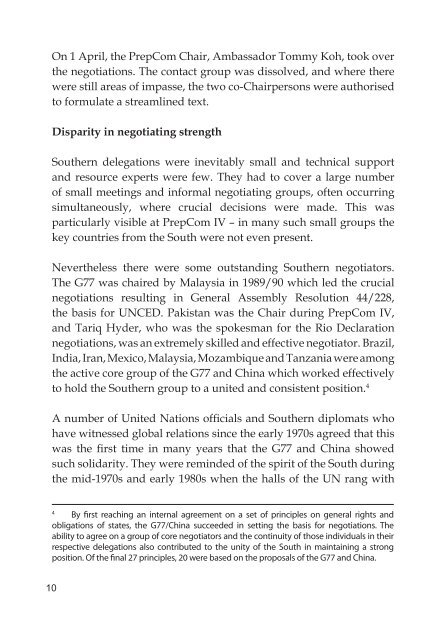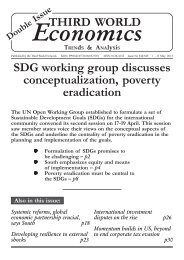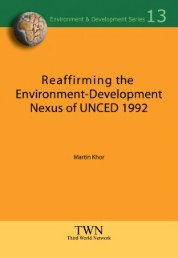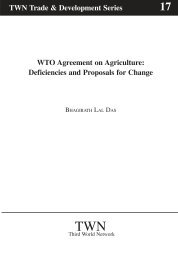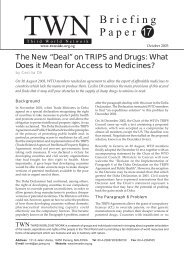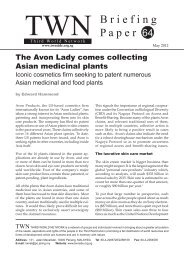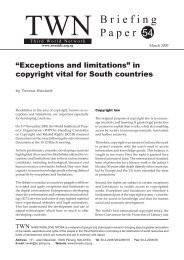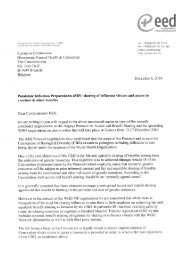Rio Declaration On Environment and Development: An Assessment
Rio Declaration On Environment and Development: An Assessment
Rio Declaration On Environment and Development: An Assessment
You also want an ePaper? Increase the reach of your titles
YUMPU automatically turns print PDFs into web optimized ePapers that Google loves.
<strong>On</strong> 1 April, the PrepCom Chair, Ambassador Tommy Koh, took over<br />
the negotiations. The contact group was dissolved, <strong>and</strong> where there<br />
were still areas of impasse, the two co-Chairpersons were authorised<br />
to formulate a streamlined text.<br />
Disparity in negotiating strength<br />
Southern delegations were inevitably small <strong>and</strong> technical support<br />
<strong>and</strong> resource experts were few. They had to cover a large number<br />
of small meetings <strong>and</strong> informal negotiating groups, often occurring<br />
simultaneously, where crucial decisions were made. This was<br />
particularly visible at PrepCom IV – in many such small groups the<br />
key countries from the South were not even present.<br />
Nevertheless there were some outst<strong>and</strong>ing Southern negotiators.<br />
The G77 was chaired by Malaysia in 1989/90 which led the crucial<br />
negotiations resulting in General Assembly Resolution 44/228,<br />
the basis for UNCED. Pakistan was the Chair during PrepCom IV,<br />
<strong>and</strong> Tariq Hyder, who was the spokesman for the <strong>Rio</strong> <strong>Declaration</strong><br />
negotiations, was an extremely skilled <strong>and</strong> effective negotiator. Brazil,<br />
India, Iran, Mexico, Malaysia, Mozambique <strong>and</strong> Tanzania were among<br />
the active core group of the G77 <strong>and</strong> China which worked effectively<br />
to hold the Southern group to a united <strong>and</strong> consistent position. 4<br />
A number of United Nations officials <strong>and</strong> Southern diplomats who<br />
have witnessed global relations since the early 1970s agreed that this<br />
was the first time in many years that the G77 <strong>and</strong> China showed<br />
such solidarity. They were reminded of the spirit of the South during<br />
the mid-1970s <strong>and</strong> early 1980s when the halls of the UN rang with<br />
4<br />
By first reaching an internal agreement on a set of principles on general rights <strong>and</strong><br />
obligations of states, the G77/China succeeded in setting the basis for negotiations. The<br />
ability to agree on a group of core negotiators <strong>and</strong> the continuity of those individuals in their<br />
respective delegations also contributed to the unity of the South in maintaining a strong<br />
position. Of the final 27 principles, 20 were based on the proposals of the G77 <strong>and</strong> China.<br />
10


